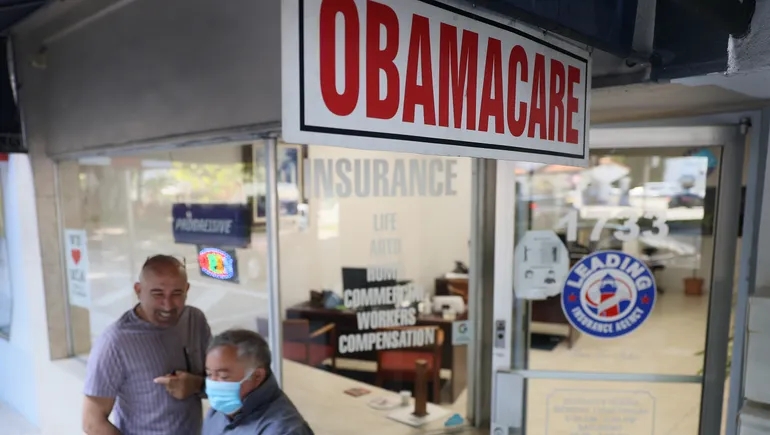Dive Brief:
Premiums and the number of uninsured Americans will rise if lawmakers fail to extend more generous subsidies for health plans on the Affordable Care Act exchanges, according to an estimate by the Congressional Budget Office.
The number of uninsured people will increase by 3.8 million each year on average from 2026 through 2034 if Congress doesn’t permanently extend the enhanced premium tax credits, which are set to expire at the end of 2025, according to the CBO.
Costs for people enrolled in ACA plans will also rise. The agency estimates gross benchmark premiums will climb by 7.9% on average over the same time period.
Dive Insight:
During the COVID-19 pandemic, the Biden administration put in place enhanced tax credits for Americans who buy health insurance coverage via the ACA marketplaces.
Beneficiaries with incomes between 100% and 400% of the federal poverty level received higher premium tax credits under the financial assistance. Those with incomes above 400% of the federal poverty level — who were previously completely ineligible — could also qualify.
The subsidies were extended until the end of 2025.
Democrats have already introduced legislation to preserve the tax credits, arguing they lower costs for beneficiaries and contributed to record-breaking enrollment in marketplace plans.
But Republicans — who will control all three branches of the federal government beginning in January — argue the subsidies are too expensive and create opportunities for fraud, suggesting the financial assistance might not survive a new administration.
A previous CBO report found permanently extending the policy would increase the federal budget deficit by about $335 billion from 2025 to 2034.
If the enhanced tax credits expire, the number of uninsured could rise by 2.2 million in 2026 and by 3.7 million in 2027, according to the CBO. The spike would likely be smaller at first because some enrollees will take time to fully respond to the policy changes, in part due processes like automatic renewals.
Premium increases will also take time to fully come into effect. Gross benchmark premiums will rise by 4.3% in 2026 and 7.7% in 2027, as healthier people exit the exchanges due to cost and insurers raise premiums for those who remain, according to the CBO.
The report mirrors estimates from other research groups. A report published Monday by the Robert Wood Johnson Foundation and the Urban Institute found household spending on premiums would surge if the subsidies expire.
For example, beneficiaries in the lowest income category could see their average premiums increase from $0 to $387 per year, while people with incomes higher than 400% of the federal poverty level would have premiums increase by more than $2,900 per year, according to that report.
Another report by the Urban Institute estimated four million people could become uninsured if the subsidies are allowed to lapse.


